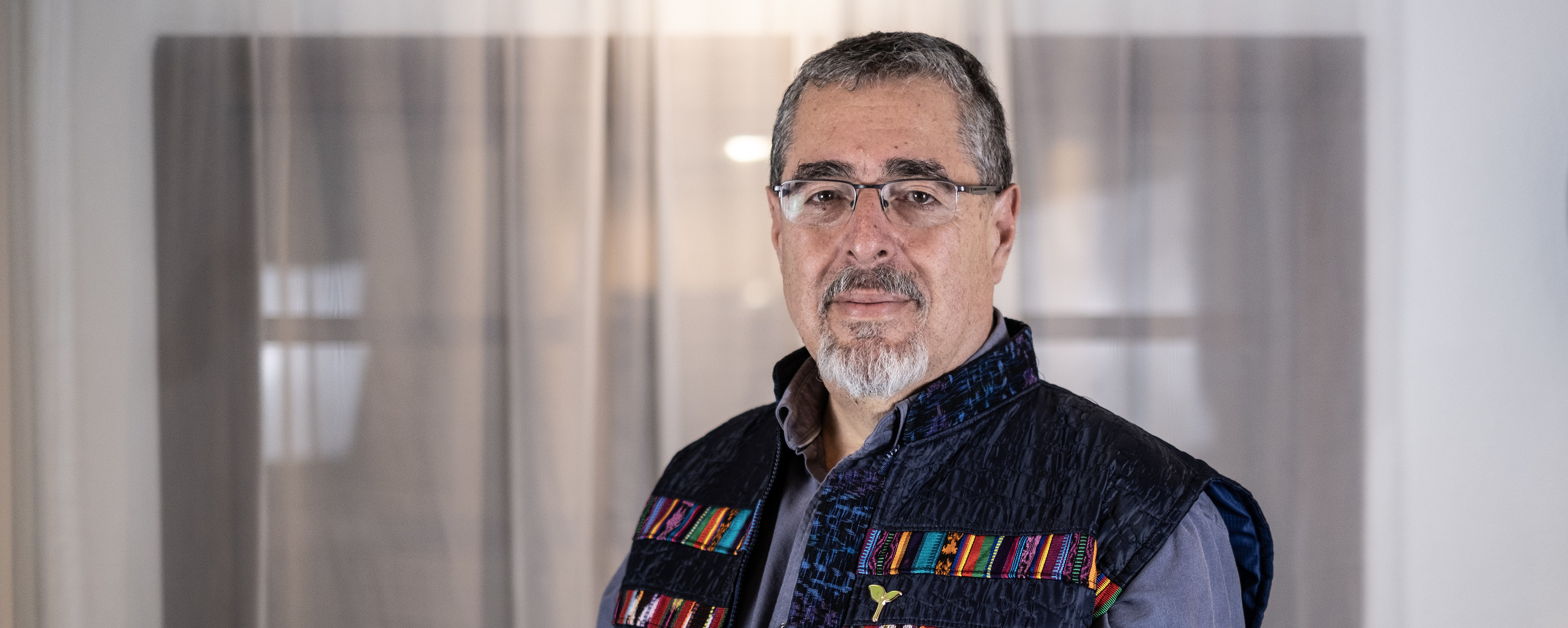"If I win the presidency there will be efforts to stop the transfer of power" [View all]

Monday, August 14, 2023
José Luis Sanz / Guatemala City
Leer en español
Six weeks ago, the presidential first-round election reordered Guatemala’s political map around the Semilla Movement, a small progressive party born six years ago with the electoral baggage of being too urban, too intellectual and middle-class, too “should-be” obsessed. Next Sunday, August 20, the surprise would be if the party candidate, the 65-year-old academic and former diplomat Bernardo Arévalo, does not win.
In a country suffocated by racism and elites’ gluttony, Arévalo has unwittingly managed in the last two months to bind together the excitement of urban university students, hopes of Indigenous movements denouncing centuries of exclusion, and anti-system exhaustion that in other countries has stoked populism. While the state has incarcerated journalists and exiled 30 of its brightest anti-mafia judges and prosecutors, the son of the first president of the 1944 revolution promises a renewed democratic spring.
He will push what the mighty international anti-impunity commission CICIG fell short: to cleanse state institutions of corruption and lay bare the very business, partisan, military, and criminal alliances that since June 25 have sought by every means possible to bar his candidacy.
If the Sunday election is a referendum between continuity —his opponent Sandra Torres has accused him of being an anti-Christian, foreigner, and homosexual on the campaign trail while promising cash money, baskets of food, houses, and even plots of land— then a Semilla presidency would pose a radical dilemma to the entire political system, especially to those who have been active or silent accomplices to recent governments: whether to join a dialogue in search of baseline democratic consensus or betray voters’ evident desire for change.
More:
https://elfaro.net/en/202308/centroamerica/26982/if-i-win-the-presidency-there-will-be-efforts-to-stop-the-transfer-of-power
